- About MAA
- Membership
- MAA Publications
- Periodicals
- Blogs
- MAA Book Series
- MAA Press (an imprint of the AMS)
- MAA Notes
- MAA Reviews
- Mathematical Communication
- Information for Libraries
- Author Resources
- Advertise with MAA
- Meetings
- Competitions
- Programs
- Communities
- MAA Sections
- SIGMAA
- MAA Connect
- Students
- MAA Awards
- Awards Booklets
- Writing Awards
- Teaching Awards
- Service Awards
- Research Awards
- Lecture Awards
- Putnam Competition Individual and Team Winners
- D. E. Shaw Group AMC 8 Awards & Certificates
- Maryam Mirzakhani AMC 10 A Awards & Certificates
- Two Sigma AMC 10 B Awards & Certificates
- Jane Street AMC 12 A Awards & Certificates
- Akamai AMC 12 B Awards & Certificates
- High School Teachers
- News
You are here
Mathematical Treasure: Cantor's 'On Trigonometric Series'
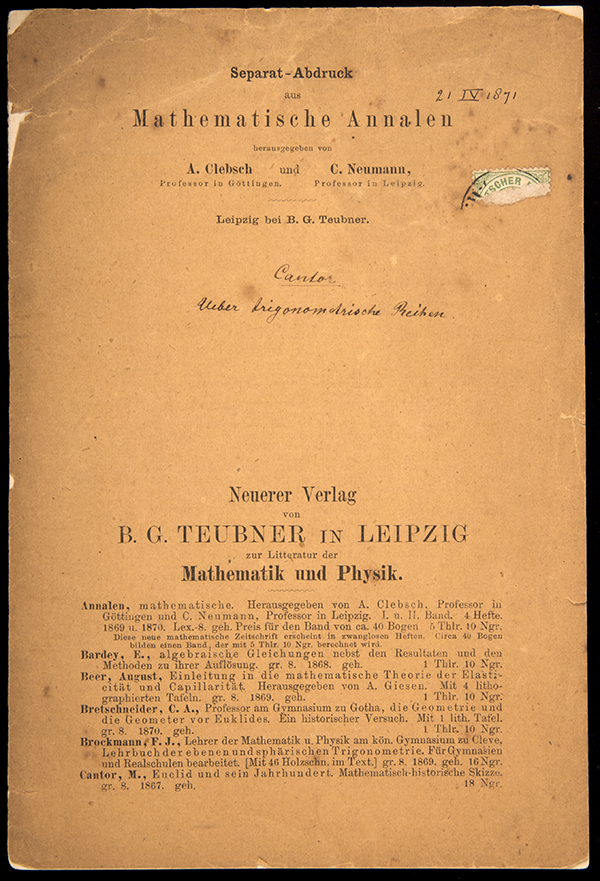
Georg Cantor (1845-1918), the German mathematician credited with the founding of set theory, originally began his mathematical investigations in number theory. However, his mentor Leopold Kronecker posed him a question that would change his mathematical career: “If a given function can be represented by a trigonometric series, is that representation unique?” Cantor’s quest for the answer led him into research on the convergence of infinite trigonometric series, the properties of the real numbers and the realm of transfinite arithmetic. Many of his findings and opinions were published in the journal Mathematische Annalen. Here is Cantor’s 1871 paper, “Ueber trigonometrische Reihen” ("On Trigonometric Series") in its entirety for the reference of German readers.

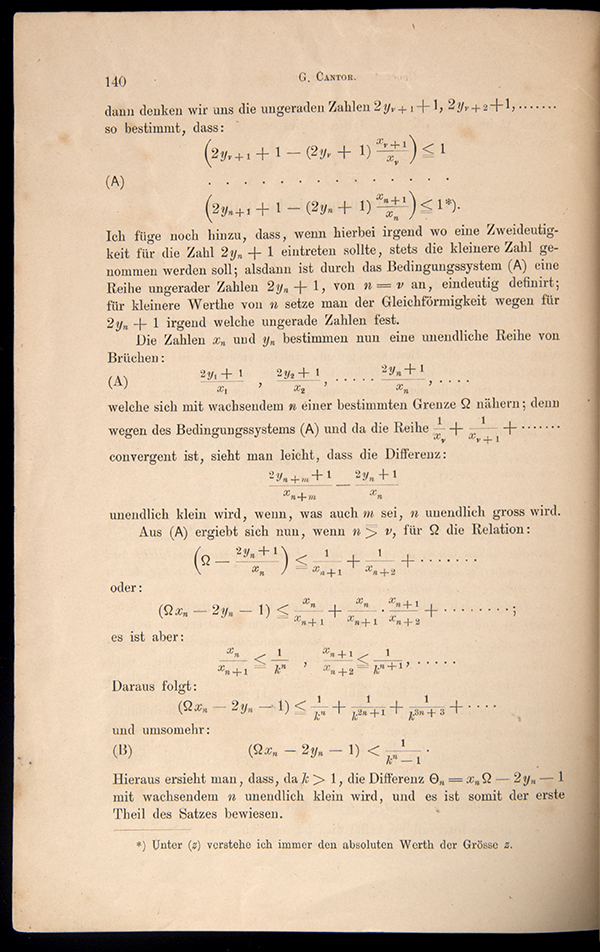
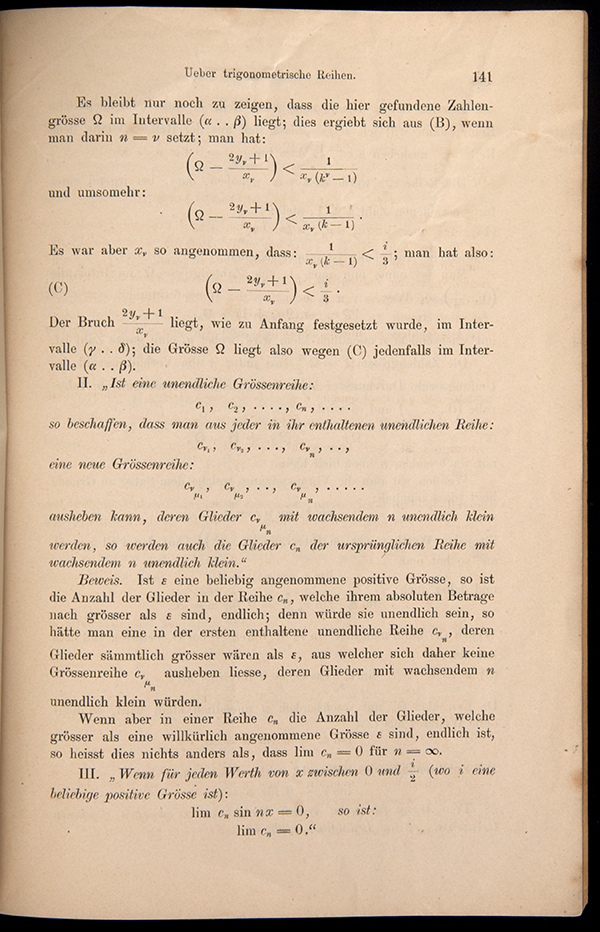
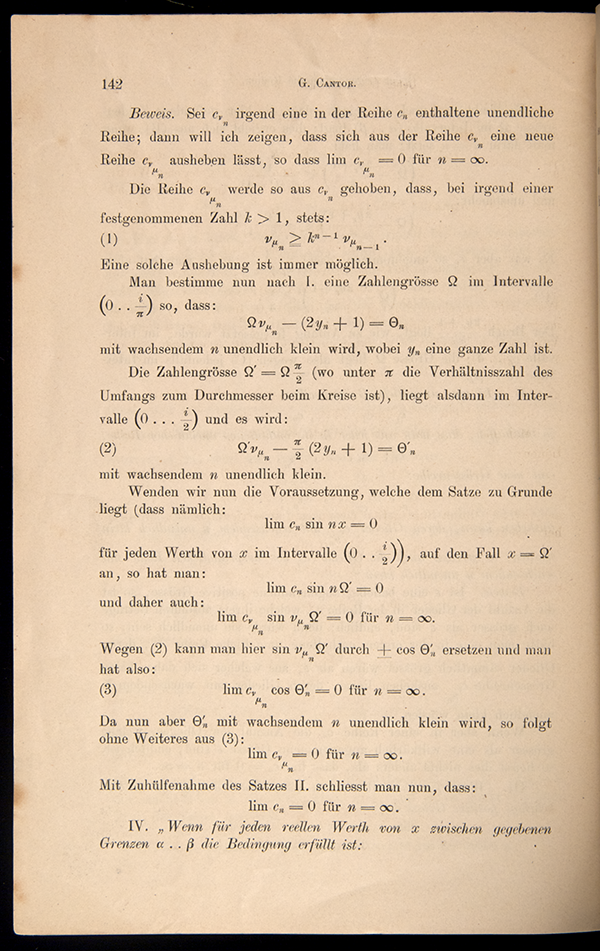
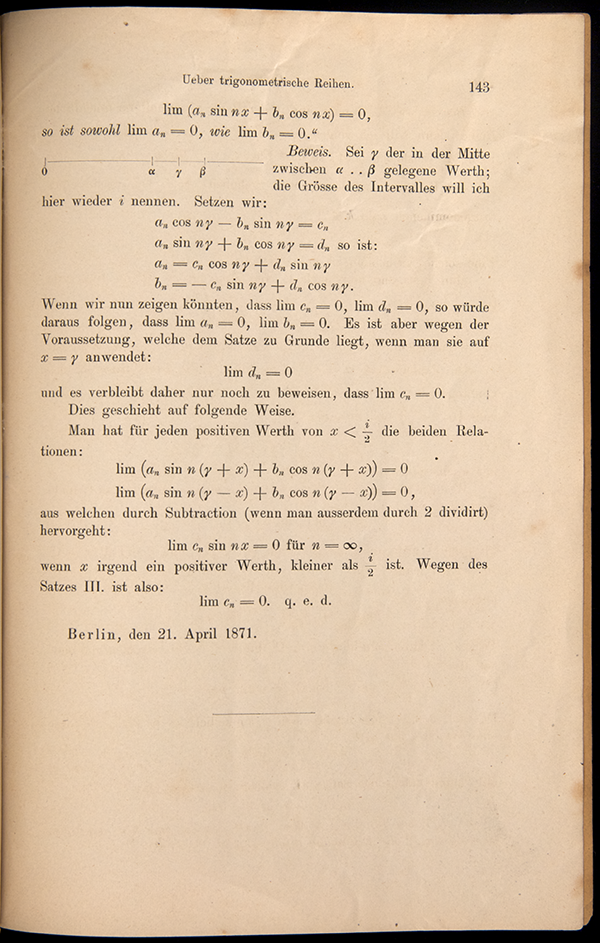
For a survey of Georg Cantor’s life and work, see: Georg Cantor: His Mathematics and Philosophy of the Infinite, by Joseph Dauben, Princeton University Press, 1990.
These images are provided through the courtesy of the History of Science Collections, University of Oklahoma Libraries, and the special considerations of Kerry Magruder, Curator, and Carilyn Livesey, Coordinator of the Collection. These materials may be viewed in their entirety at the History of Science Collections website.
Frank J. Swetz (The Pennsylvania State University), "Mathematical Treasure: Cantor's 'On Trigonometric Series'," Convergence (November 2014)




